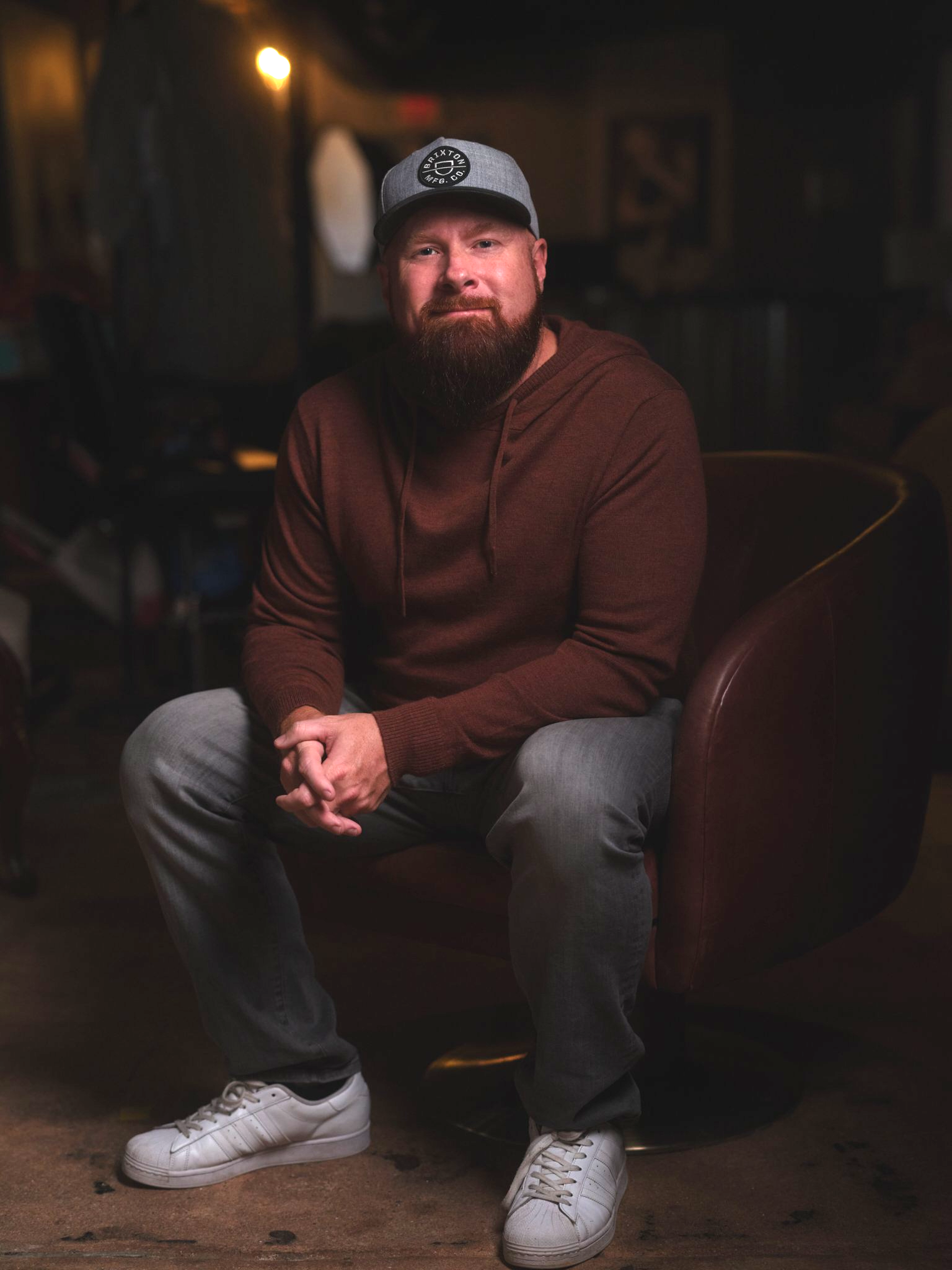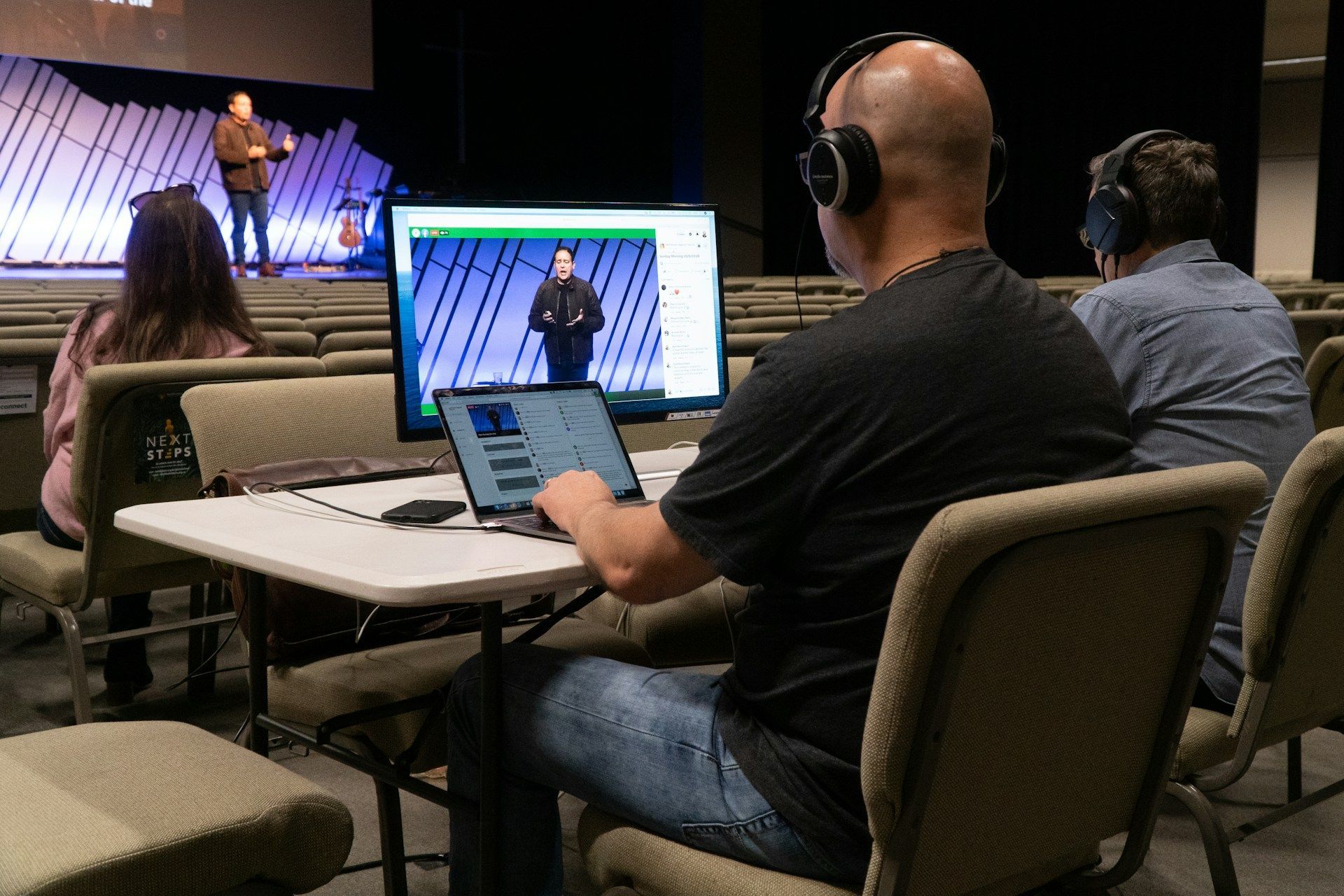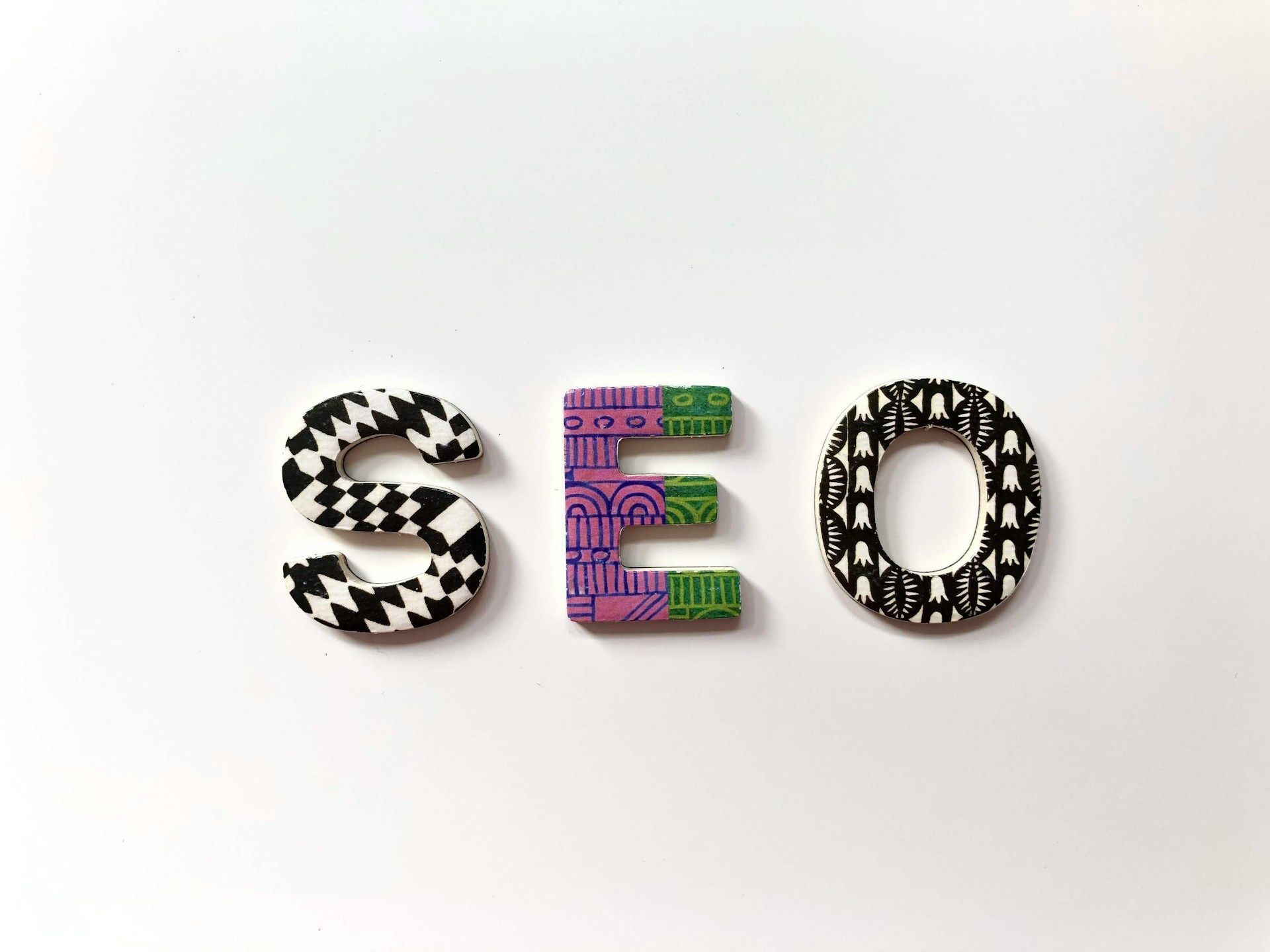What Makes a Great Church Website?
WEBINAR REPLAY
With me today I've got a special guest Mr. Shane Hodge from The Camel Company, and I'll let him tell you a little bit about himself. I've got to know this guy a little bit over the past couple years and one of the most energetic guys and fun to listen to guys I know, and that'll make a little bit more sense here in a second, but Shane, tell us a little bit about yourself, your background, your history and how you ended up doing what you're doing now.
Hey, Jono. Good to see you.
Always good to see you, my friend.
I've always loved that beard. Every time I see that beard, I sit back, and I go, I wish I had that on my head.
Oh, I appreciate that. I was getting it cut. I was getting it trimmed the other day, and the guy in the chair next to me, he was like man, I've got serious beard envy over here, but he had a really nice head of hair and I'm like, well, bro, I've got head of hair envy, so you can't have it all.
You can't have it all. But I don't know if I could grow the beard, but I don't think my wife would sort of let me do it now. I don't have the patience. I think it gets to the week and I'm starting to scratch, and I think, no.
I want to thank you for the invitation to have a chat today. We've got some exciting stuff and lots of stories and good questions.
Probably as you said, let me explain. I'm the CEO and Co-founder. My wife's the other Founder of TheCamel.co, and we started in officially 2013, but we were in this business probably two years before that. What happened was that I was selling mobile websites in Australia, and we sold a lot of them.
I think we sold close to 3000 in about 18 months, and we did all door to door, right. And we needed a team, a fulfillment team to help us out. And I'd spent 25 years on my life in Asia and in the USA doing business development and I was preaching as well. And I come over to the Philippines because I knew the Philippines well, and we had a team or two in mind over here.
My wife who was not my wife back then. She was running one of the crews and I was here for about two weeks, and I went back to Australia. I couldn't stop thinking about this gal. So, I ended up getting back on a plane and coming back over and the rest is history. We started The Camel.
There was only the two of us. I'd sell websites and my wife would build them. And what happened was we knew that the business was changing. That mobile websites were great, but what was going to happen was one URL, three different views, desktop tablet, and mobile.
This was back in the day when everyone was having to build a separate mobile version for their website.
Yeah. And they had a WordPress website or that Drupal or whatever. And we were working with a company called go Mobi and we were tacking it on, to the WordPress site and it worked, you know. But you just knew the game was changing that mobile was growing so fast, but you needed that one URL.
You needed that adaptive website. And we looked and we found a company called Duda, so we joined up with them. But what happened was as slowly but surely, we stopped selling our own websites and we started making websites for other people. So, our team grew from three and then it got to 10, and then we started doing development work.
So, I went to 25 and then as time went on, we started to do digital marketing and it went to 30 and now we've got 85 in the Philippines, and we've got a strategic partner in India. So, it brings us close to 200 people now. We're, solutions partner with Duda. So, we look after people like Jono, and everyone else. 300 plus websites a month.
We do a lot of migrations now last year we migrated, close to 150,000 web pages. And we're also a Google partner.
So are you guys with those migrations are a lot of those coming from WordPress because I find, every migration we do. In fact, I just got off the phone with a Church.
I hear this scenario from Churches all the time. You probably do too, that he said, look, we had a lady that was on staff. She built us a WordPress website. She left. Now, here I am left to change stuff on it, and even though, they're using Elementor or whatever, which is the easiest of the builders inside of WordPress, but it's still not user friendly for the average user, unless you work in WordPress all day.
So, we've got clients coming to us saying, "Hey, look, we want a new website. We like the way our website looks, but we want to move it to something that we could change some stuff on if we want to." And that's what's great about the platform that we use here at Faithworks, and that Shane uses at the Camel, is that you are going to get a fast website, a responsive website that looks good on every size screen.
You're going to have access and we can lock it down to where you can't break anything, but you can go in and change things on your own without having to pay us, $75 now, whatever it is to go do these changes. So, it's beautiful.
The good thing is that if they want some something a little special and you can build a widget, that's part of your platform.
It's not a plugin. It doesn't rely on being hosted somewhere else. So, it's more secure. It's safe. I mean, no Church wants their website to be hacked into. To drop off the planet, right? Because of some little bit of script that someone can get into. And that's the other reason I love the platform, we deal with. Everything you want to develop; you can develop within the platform. So, one of your clients could turn around and say, well, we need this feature, and you can make it as a widget and just drop it in there. And it's safe and secure because it's got a 99.9999, forget how many nines percent uptime.
That was one of the things, but you're right. You nailed it. That it's so easy for people to use. They don't have to be a programmer. They don't have to be, a designer it's easy to drag and drop and move Jono.
Yeah. But the other great thing about our platform is that it's not a lot of the do-it-yourself builders, like some of the Wix or the Weebly, Squarespace even they're easy to use, intuitive, but the problem is if you ever want to get serious about search engine optimization, then you're going to have to go to another platform that's more open. That's going to give you access to do everything that you need to do. That's what's beautiful about our platform. It's got the ease and the intuitiveness for the average person, but it's also got under the hood, everything we need to make this thing fast, to make Google happy, to do all the nerd, things like Schema Markup and all those things that make it show up at the top, which is what, at the end of the day, what good is having a website, if it's never going to show up.
So, it's really a beautiful thing there.
In the conversation we were having before we got online that a Church, there's this thing about you, can't say it's a business, or it's about marketing. There's always this funny feeling, but the fact is that it is when it comes to the digital world. It is a business, and it needs marketing practices, and it needs SEO, and you need social media, all those needs are there.
So, if you've got a platform that is happy in that world, it's going to make it easier for them, which it's easier for them to do things. It helps them with their rankings and their congregation and all sorts of things. It's just so much easier. And you named a couple of things like Wix so forth.
It is difficult. It's not an easy thing.
Right, and that's, again, a part of the conversation I just had with someone else just a little bit ago is another conversation that we have a lot. They're a large Church, a growing Church, and they've been around a while and they're so frustrated.
And it's not a pride thing, but they're like as long as we've been around and as much as we're growing, how are we number seven on the Google Local Maps? I said, because that has nothing to do with showing up on Google Maps. That Google Maps doesn't care how big your building is or how many people are attending on Sunday morning, you've got to play Google's games. Usually at my house, if you search Church near me, which is, searched on average, 27,000 times in my state alone, just Church near me. In the state of Florida, I was looking at it, it's like 65,000 times a month. Google tells us, take that with a grain of salt.
But anyway, if you search Church near me at my house, there is an amazing Church, a guy that I went to seminary with right down the road, probably two miles. And they're like number 11 or 12. And the Churches, the three Churches that show up in the map pack, that map pack where you want to be, just like, if you're looking for best Chinese food near me or best electrician near me, people are searching best Church near me and the top three in my area, two of them I've lived here in my entire life. And I could not tell you where these two Churches are. I've never heard of them. I think they were maybe house Churches, and they don't exist anymore.
And then the other one is the old Methodist Church that has been here since the Protestant reformation. So, they're just kind of showing up. But I tell these guys like, look, because your website plays into that Google factors in the quality of this website over here. How user friendly is it?
How does it look on a phone? How fast is it? How close are the buttons together? Can everybody get there and get what they need? Can everyone get on this website and get what they need to know quickly and easily? Because otherwise they're going to bounce to a different website.
It's crazy. You nailed it. That's amazing. It's a huge Church and you didn't know it was there.
Yeah, exactly. So, the thing is again, this is one of those awkward conversations I have with them, but it's like, look guys, I know we're not all out to just crush the competition in Church world.
But if you believe that you've got the message that everyone needs to hear, there are things you can do to show up at the top of Google, and if you want to be there, you're going to have to treat this from a marketing standpoint and you're just going to have to do it. If that's important to you and it's becoming, I think since COVID, I think it's become more and more important in guys' minds. Like, yeah, we need to show up.
You think about it Jono. If Jesus was around now, do you reckon he wouldn't use social media?
I'm pretty sure he would be posting. I bet Jesus would have an amazing TikTok account.
I thought about that this morning and my wife, and I were talking about it. I said, can you imagine if Jesus had like a YouTube channel, TikTok, do you reckon he would've said, Hey, welcome.
Right. I mean, he would've done it. So, I think what was the word used? Awkward conversation you know that, and when you mention COVID, it became an even awkwarder. Is that a word? It became more awkward because whether you like it or not. Suddenly you were faced with, well, you better get with the program, right?
I like that word awkward conversation because I know, in my years, even, worship services, you'd go to the elders and you'd say, oh, we need do this because we've got two people and a dog in our Church on Sunday mornings and they go, oh, but we, we can't have that.
And we can't, and you you'd have that awkward conversation. Now the awkward conversation involves things like what you're talking about. Like Google, like, when you say call to action, click to call, all of that's important. And whether you like it or not, it is an awkward conversation, but it's a necessary one.
Absolutely. So, moving along here just a little bit, just a quick outline here to let everybody know kind of what you're in for. We'll continue talking. And of course, this is a conversation between two friends here, but we are going to hit on a few things. We'll talk a little bit more about how the websites for Churches have changed with COVID.
We're going to hit on how Church websites can't just be some pretty pictures, some nice words, just some scripture and say: Hey, come visit our Church. We got to go deeper than that. We've got to make it a part of our outreach strategy. It's the window of your Church. And the Church website now is also In reach and that's reaching out to the brothers and sisters that are already members.
So, let's talk about COVID for a second. What changes have you seen, as far as COVID goes?
Wow. I mean, for all of us, it was a crazy time, and it still is. But if we go back, I know our own story. We had our company yearly event on March the 15th, two years ago, whatever it was, and I made the announcement.
Okay, kids. We're all going to be home based now. This is on a Saturday. And then Sunday, we had trucks and vans and things, moving computers, setting up, cabling in 85 people's houses. Right? And on the Monday morning, we're a home-based online business that we've got to do business with the world.
And we're not all going to be together anymore, and it was the same for, restaurants, all of a sudden bang, the doors were closed, and it was instant. It wasn't something you, like if you're going to go out of business, it's over a period. Right. In the case of COVID everything happened so fast.
And suddenly, a restaurant that relied so much on, its website that was all about pretty pictures. It was themed around ambience. It was, you know just selling the fact of getting you inside, booking a table and sitting down and eating that's the way the website was geared. And then you had things like gymnasiums, and it was all about state of the art of equipment.
And pictures of people with big muscles sticking out of their body as they stood beside some bench press. Right. It was all about getting people into the building and Church websites were exactly the same, that there were pretty pictures on the front, and it was all aimed at one thing to get you to go to the building, right?
And overnight that wasn't going to cut it anymore. If you're a restaurant, the most important thing on your website was your menu and how you presented the menu. That if you didn't get people that when they were looking at your website and reading through your menu, if they weren't, getting a little bit of saliva going and a bit of a dribble in the mouth about what they were seeing, they weren't going to order Uber eats.
They were going to go somewhere else that satisfied their eyes and their tummy for what they were seeing. The menu became the most important thing. The gymnasium, what became important was their ability to train you online. Their ability to use things in your house to continue to train, to be able to run up and downstairs and to be able to use, like five-liter water bottles, fill in with water and that's a weight.
That's what become. The Church, what happened there was, it was no longer about what you can do inside that building. It's what you can do outside that building, how you can outreach to them online. So, YouTube became important, social media, which was like a secondary thought, became a primary thought.
Your ability to get people excited, because as you said before, all of a sudden, they could visit eight Churches in 15 minutes. Because before they'd have to go on a building, they'd have to make excuses. I'm sorry. Weren't here last week because we were checking out another Church.
They didn't have to do that anymore. They could click on a Church website, go to a YouTube link. They could listen to a sermon. They could say, ah, well, that suits us more. All of a sudden, the whole game changed. It's not what it was. And I thought about it today. And if you look at it, when Jesus gave us that great commandment, he turned around and said, go out and preach, the good news, baptize people in my name, but go out. What has happened, over such a long period of time, it's come into this building. People and Churches got so fixated on the building, so they have all these unbelievable looks at our service area, look at our sound system, look at our massive video screens, none of that mattered anymore. What mattered was that word go out.
And that was the key to what you were going to do with COVID.
Yeah. It's an interesting thing because, really, I mean like, at our Church and a lot of my friends, Churches, but even before COVID we were kind of piddling, playing around with the idea of streaming, not taking it too seriously.
Hadn't invested in any equipment, but then all of a sudden now it's like, we got to get this ramped up really quick. And I remember in the early days, of course I played drums in the band at Church. So, we were going on Tuesday night recording the service because we didn't have streaming capabilities.
So, we were recording the service, recording the band, mixing it, the pastors preaching. And then we were just kind of playing a video until we could get things together. But then as time goes on, I mean as time goes on, I remember having a conversation with our pastor, and him saying, we don't even really know who still attends our Church.
We don't know whose even still part of our Church because so many people, that we reached out to they're like, well, we're watching online and, you don't want to pressure anyone to come back if they're not comfortable. So, man, it has been a weird two years. I got to show you this picture.
So, March 8th and let's see if this shows up on the screen. Can you see this? Is this showing up? So, this is March 8th, two years ago. This is right when COVID like starting to be talked about. So, I was doing the announcements at worship on Sunday morning, and I thought it'd be a hilarious idea to wear a hazmat suit out with, with Lysol wipes in my pocket and thinking, Hey, this is no big deal.
Everybody's overreacting. That picture did not age well, looking back properly should not have made that joke. But so, every year somebody reminds me that I took that picture. So, what's interesting in my story. January 2020, I told the Church, Hey, I'm going to I'm going to be stepping down.
I had already gone part-time I was phasing out. I was getting old. I was about to turn 40. And I was just too tired to be a youth pastor in a lot of ways. And this business was growing and, so it was just a good time to transition, and we still attend that, Church. And everything's great.
So, it wasn't one of those bad breakups or anything, but I told the Church, Hey, in March, I'm going to be stepping down March 30th. It'll be my last day. I told them this is January. So, we decided, well, Wednesday, March 11th that I'll tell the students, I'll tell the youth group, Hey, that I'm going to be stepping down.
So that Wednesday night I told them that I would be stepping down, but we'd have two more weeks together. Because my last day wouldn't be until March 30th, 2020. And that was the night that in the United it states that the NCAA March madness, basketball was all canceled, which millions and millions of dollars on the line.
So, when they canceled that, I knew like, oh, something bad is about to happen. So, my birthday, March 13th, 2020. That was the night that our governor shut down. That was the last time we went to a restaurant for about, five or six months. So anyway, I spent my last couple months as a youth pastor on Instagram.
So, the guy who took over for me youth group was on Instagram for quite a while. And Church was just online. And I got to tell you, as somebody who has attended Church since childhood, just, religiously for lack of a better term, I got used to sitting in my pajamas, eating pancakes, watching Church really, really quick.
And just like people have started realizing, well, my job didn't need me at the office as much as they said they did. There's no reason I can't work from home. Cause we made that happen really quick. I think in our minds too, pretty quick, we went to. I can be a part of the Church and just stay at home.
Now there's an argument to be had for fellowship and interaction and relationship that we're not going to get online. But if, for somebody who's just checking things out, that's going to be the first place that they look, and I guarantee you. In fact, I could almost prove it.
We're running a campaign for our Church and we're doing this for several other Churches. It's a Plan Your Visit campaign. And we run a Facebook ad with a lead form, and you give your name, email address and phone number. And then we hook that into our automated platform. We call it, Reach Up.
And we've set up a series of automations. Well, about 30 seconds later, they get a text saying, Hey, this is pastor Ken. We just saw that you signed up to come see us this Sunday. Can't wait to meet you. And then we send them a voicemail and then they get an email a day later and then they get a couple more text messages.
But I'm watching those. We just cranked it up a couple weeks ago. We've had several people commit to attend, but several of them have said well, we're going to watch it online this week. And then next week we'll be in person. So, I'm pretty certain that people are checking things out.
People are checking out Churches services via the website, going to checking out the website before they ever commit to attend because now, they can see it's scary to walk into a Church that you've never been to before. So now you've got that. I can check things out.
So, AJ was asking a question, how do we handle the Churches who are believing the, if we build it, they will come. And I've a couple clients who have said we don't need marketing or websites because God will send us new Church members and help us grow. AJ, I think we're in a Facebook group together. So yeah, what would you say to that, Shane?
Well, I mean, it goes back to what I said before, Jesus never said, well, sit back and wait and they'll turn up. Right. He went from town to town, house to house and the announcements were coming. Before he got there, right. There was no waiting. Right. And if anything, there was marketing in that, right.
He was promoting other people were promoting, right. He had a great message that people wanted to hear and people heard about it. Right? It's same with the Church. The, the fact of saying, well, we are just going to sit back and they're all going to turn up. Isn’t going to happen because it's never happened.
It's something where you've got to make some noise. And in this day and age, how do you make that noise? You do it on social media. You do it with the things that you mentioned before that, some people they might come to a Church, or they might look online now, and they need to know that you love them.
How do you do that? You send a text message, but if you can automate that, if you've got lots and lots of people visiting, it's something you have to do now, right? That whether you like it or not, it's not just a matter of, well, they're just going to look at our website and they're going to say, well, that place looks really looks like it's happening.
Let's go and visit it. But it doesn't mean they'll say it. It doesn't mean they'll go. Because as you said, they're looking at eight other places on what suits them. So, you've got to use all the tools that are available to make sure that they find themselves your home, which is where you are.
I've dealt with pastors saying that. I would say to the pastor or the Church leader that says, look, we don't need a website. God will send us new Church members and help us grow. That just kind of goes against the great commission when Jesus said like, you're going to have to go out.
Paul said, you've got to do the work of an evangelist. Even if you're not an evangelist, you've got to do the work of an evangelist. So, I want our website to be part of doing the work of the evangelist because it can which sounds really strange, but our, our websites can be an evangelistic tool.
To me, this is probably too strong of a word, but that just sounds like somebody being lazy, God's just going to send it to us, send people to us that may have worked in the sixties and the seventies in the United States, but maybe even the eighties, but that's not the case anymore, especially where I am.
I'm in the south AJ, you're in Louisiana. We're down here in the Bible belt. And so, if there's anywhere that that would work, it would be here, and it doesn't work here anymore. That's just not people aren't just, now people are looking for a Church. There are a lot of people who are looking for a Church.
Now, I would say a good many of them probably just mad at their other Church. Because we've got this consumeristic thing going on. Where if, when people are mad about something, well there's one a mile down the road. I'll just go there. You know? So that's not super healthy, but I do think there are good many people who are looking for Churches and maybe they grew up in Church.
I know I saw a message come in from someone, from one of the Plan Your Visit campaigns, just sharing that. It was really, it was a message of someone who sounded just looking for hope. Saying, look, I've got these two teenage sons and I'm not really sure what, how to even have faith. I don't know what that means, but I want it.
And she's going to join. She's going to be a part of our Church Sunday, hopefully. So, I think people are seeking out truth. So, when you've got people like that, who we know there are people looking and for you to just sit there as a pastor and say, well, God will just send them.
Well, no, he's going to send them to somebody. He's sending them somewhere maybe, but it isn’t going to be your place.
It's going to be somebody who's going to take care of them and cares about them.
And do you think that the person that's sitting there looking for hope, as you've said, don't you think that they're going to sit back because they're conditioned to do it. They're not going to type in that little bar looking for hope.
They're going to type that in and they're going to be looking for a place that's going to give them hope. So, your website now, which is the, we call it shop front. Right. But your website, it's got to convey that message and demonstrate if you're looking for hope you've come to the right place.
Because someone is going to be guided there, but there's going to be eight other choices on where they're looking for hope. I thought about it and what do they say? It takes 21 days to change a habit. We've had two and a half years Jono.
So, if people think that, oh, it's okay. We're going to go back to the way our website used to be, or there's no need to change. Sorry. That's not going to cut it because that person who is looking for hope or looking for a different style of hope is going to do what you did on a Saturday morning. And that's sit back and visit eight Churches.
Right. So, your website has to be set up for that now, and there's no going back. Because that's how people, when they're looking for hope, looking for a congregation they might have moved town because so many people have moved now. Right. Because there's no jobs where they are and they've got to go to another town or, the kids have got to go to another school. A lot has changed. So, thinking that it'll be cool. God will send them. No, because so much has changed and it's not going to go back to the way it was because people have been conditioned. This last and half years.
Yeah. 100%. And as Churches have opened back up, it's funny. You'll see, like, I know Church members who have said, well, we're just not ready to come back yet. But I saw pictures of you and your family at Disney last week. It's still even easy to use COVID to justify in your head to sit at home. I've talked to pastors. I remember one pastor saying, man, we got so many people just standing out in the hall. They don't come in until like halfway through the worship service. I was like, well, the worship service is on like 15 TV monitors in the hallway and there's coffee out here.
Why would they go in when they're drinking a cup of coffee can kind of hear things it's like we've conditioned them. And now we didn't condition everybody to stay home on purpose. we had to meet them where they were, but at some point, we've, we've now got to retool things and use the online service for outreach.
But I do think eventually we do want them to be a part of the fellowship and build actual relationships. I don't think we want to end up with a metaverse Church. However, on the other hand, I think about people like my dad, my parents divorced when I was two and I went to my dad's house every other weekend.
He had major social anxiety. So, every Sunday morning we would get up, we would go to Burger King, and we would get our breakfast and we would come back, and we would sit at the table. I'm in Atlanta, Georgia. And there was a Church called Roswell Street Baptist Church.
Dr. Nelson Price was the pastor. And every Sunday morning we watched, my dad did online Church in the eighties and before anybody else did it. He wanted to be a part of a Church, but idea of him going into a crowd of people, he just could not emotionally handle that.
That's not everybody, but there are, I think a lot of people who, it is going to be a long time before they could come into a Church full of people for whatever reason. So, the cool thing is that a lot of Churches are now meeting people where they're at with whatever issues they've got going on.
But like you said here, the Church website can no longer be some pretty pictures and just some kind words. Some things need to change. So that kind of leads us into the next idea here, it's a mainstay of outreach, your website's the window of your Church, the work you do, how you can help the message that you bring.
And it really must be a true call to action for those that are looking for, or a new place of worship. I think that's good stuff. I see a lot of bad websites, when I look at Church's websites and I look at three or four Church websites every day.
I don't know about you, Shane. I don't want to be critical of everybody's websites, but most of the guys I talk to, when we get on a discovery call, they'll say, Hey man, our Church websites terrible. At least they're honest. They definitely need some help. No doubt about that.
I think you got to look at it's like when you're doing a business website, we always say don't design the website for you, right. Design it for who you want to book and buy. So, in the case of it now, if you were sitting with the Church group and you were discussing a new website, I'd be saying the way we've got to look at it now is our potential person looking for hope for a new congregation, is sitting at home on the sofa. How does our website appeal to them? What do they want to see? Because they're not going to make that decision like they did before. Well, that is the closest Church. I'll go to that one. They're going to watch several Churches online over a period of weeks and make the decision if they do, they might still stay at home.
Which one am I now going to? Be my new home. Which one? So, your website has to convey all that stuff. So, when we're talking about a business, one, we say it's got to have that call to action to make people book or buy. Right. So, in a case of a Church website, it's got to have that call to action that it gives them hope and it satisfies, encourages, educates, and fulfills their needs rather than just a bunch of pretty pictures.
And, well, this is last week's sermon, and we'd really love it if you visit us. If you'd like to donate, it'd be great.
You said something one time, it's probably been a couple years ago. It was in a Facebook post, and it stuck with me, and I use it in every website call I have now.
You said that, look, we are not trying to build an art gallery about how amazing your organization is. This is not a shrine to your business. And I use this a lot with our other agency that deals with it's not Churches, and again, I've kind of pulled away from that.
But these guys, come to us like roofers, they want pictures of all of their trucks and all of their staff and I'm like, just trying to build an art gallery about yourself. Look, no one cares about that. They want to see that does this company do what I need them to do?
Are they legit? Do they do it for people like me and where I am and have, they done it for other people like me? So, we need some testimonials on there. And I think with Churches too specifically Churches, one of the main things that's going to keep someone away is not feeling welcome.
The main reason people leave Churches is usually not theological debates is cause no one talked to them and when I was a youth pastor, that was the thing I drilled home. I was like, look, if you guys are snobs, one's coming here, you put up the Mega Church with smoke and lights and everything and a million-dollar budget and bounce houses in the parking lot.
You put that one right next to a small Church, doesn't have all the panache, and you fill up the small Church with nice people and the Mega Church with snobs. And I'm not saying Mega Churches are full of snobs. I'm just saying that people are going to go where people accept them. That's why people join gangs, people just want to be loved and accepted.
Forget the hazers, forget the light show. They're going to go where people are nice to them. And I think that that's one of the first things we need to convey in our Church websites is that we are nice people, and we are saving you a seat, we are ready for you.
I see this a lot of times on Church websites, it's a picture of the building. It's a picture of some kids that are together, whatever, which seems cute. But what that says to the person, the parents like, well, My kid probably doesn't know any of them. I wonder if they're going to know anybody. And so, we've got to figure out ways on that homepage. And what I tell everybody, when they bring a photographer in to take pictures for the website. Get pictures from the perspective of someone in the Church, don't go get up in the balcony at some weird angle and take this weird picture of the worship service where no one's ever going to be, go get in the fourth row from the back, because that's where your new people are sitting and take a picture.
Show them what it's like to sit right there. Cause that's where they want to sit, and they want to know what it feels like. Show them what it's like to walk into the Church. Show them what it's like to drop their kids off. Get some smiling, nice people taking the hand, the kids handing off and the baby's not crying and show them that this is a safe place to drop your kids off.
We take security seriously. We're smiling. We're welcoming. You may have got, there may have been some snobs at the last Church, but we promise you're not going to deal with that here. When I look at Google analytics, we're lucky if people spend a minute and a half on a website, usually less.
They're skimming this page, checking it out really quick. They're going to go look at the pastor because for whatever reason they want to see what the pastor looks like. I guess, that's always the second highest visited page. Then they're going to go look and see the service times. And if they've got kids, they're going to want to see what you've got for their kids.
And look what you just did in five minutes, you gave exactly what's going through the brain of someone sitting on their sofa. Who's looking for a new home. Who's looking for hope. Who's looking for, where can I take my kids? And I'm going to feel comfortable. I can remember back about, I don’t know, 20 years ago now we started up a little Church in Malaysia and it really blew me away that one of the biggest most attractive things of that was when the service was over, there was always a cup of tea, right?
Because in Malaysia, the expatriate community has that sort of like English background and they want to have a cup of tea and, and a scone. Right. Which is, I don’t know if you know what a scone is. It's like a little doughy bread thing that you put jam and cream on it, but anyway. No one would ever go home Jono. I would hang around for that cup of tea, the congregation, the fellowship, the chat the pastor, walk around, say how you are doing people that introduce themselves because they're sitting there inside.
They're not going to introduce themselves, but that Church grew out of that cup of tea and the scone and the jam thing. That fellowship time was so important to everyone. Cause what was missing in their life was that I just want to chat with somebody. And they felt safe, and they felt secure.
And they started promoting that as an integral part of their Church. And it started to grow. Rather than because everyone has got that trigger in them. Well, how are you going to answer the trigger when you're doing what every other Church does? And that is, you've got pictures, as you said, of our magnificent screens.
And you've got people with their hands up in the air and praying and all that stuff. That's what everyone does. What do you do? That's going to satisfy that. I'm looking for hope, but I want to be comfortable about it. I want to learn more. I want to feel, as you said, I want to park my car and my kids don't get run over.
You know that things where they just look at a picture, they look at a snippet from a video, there's some words in there. The key words are all about, safety, car park, fellowship, all that stuff. The message is important. We can't deny that, but it's the environment.
It's the fellowship. It's that feeling of, I really belong here. I'm happy here. Are you conveying that to that person? That's sitting on the couch or even maybe around the dinner table with the family going, we got to find a new Church. So, they start searching. Is that being triggered in your website?
Because that's what you need. That's the change. And the last two years have really, before, when we were looking for something, as you said, what was it a second and a half that we stay on?
Well, we're happy if somebody will stay on a website a minute, but you know that's a long time.
Yeah. You don't have much time.
So, does your Church website answer all those triggers in a minute? And go through it. Right. And that's the key now, because even more people are using that internet to find their home for hope, for fellowship, for everything else. And it might be as something as simple as how many car spaces? Do you have to park in the street when there's some Camaro screaming past? You feel safe and secure there. That may be the trigger that gets them there. Like me, I'm a sucker for a great worship service. Cause I sing. Right. I need that snippet of how good their worship is.
I love a sermon. If I see someone standing in a pulpit, I will never go to that Church. Right. If they're just standing on the stage and they're preaching the gospel and they're having fun doing it, I'll go. There was a great Church in San Diego and I'm trying to remember the name of it.
I think of it, and I searched on the internet because I was looking for a home while I was there. All the things that triggered me, I saw on their website, and it was a great place. That was my home when I lived in San Diego. And it was that minute and a half that I was on that website that got me.
Yeah. I mean, that's going to be the starting point now eventually. And I would tell our Church this all the time and I would tell our teenagers like, look, no one is going to listen to a word I say, as the youth pastor, no, one's going to listen to a word the pastor says until they're comfortable.
So, we've got to make them feel comfortable in this environment, and the thing is, around where I am, every Church has got coffee. Every Church has got a rock band. Every Church has got all the stuff. But what sets different Churches apart is involvement in their community and just how inclusive they are. Are they just generally nice people? And am I going to have to walk in and like just stare at the posters on the wall, or am I going to walk in and get like annoyed by how many people just, come to me, you know?
Is it genuine?
And so, it starts with the website.
We're going to convey who we really are, get a feel for it. And then hopefully transition them from just an online kind of viewer to in-person attender. And that's really the goal there. There's a question from AJ here. It is. Other than a website and SEO, what would you say a Church has to have to be successful online?
That's a tricky one. In my mind, the end. Goal is not to just grow online. The end goal is for this website, to get people to take their first step or their next step in becoming a part of the congregation, whether maybe that looks like sometimes it is online.
But I do think, and there's arguments about this right now, big time. A lot of the articles I read, do you have to be in person to be a part of the Church and all that. So, I don't necessarily want to get into that. I think, and maybe it's just cause of how I grew up and the Churches I attend, I want to be around people, and I want to have relationships and I want to have somebody I can talk to on Sunday morning and who knows what's going on in my life.
Not to say you couldn't accomplish that online somehow and there's tools for that. But that being said to be successful online, if we're talking just strictly online and we're not going to focus on moving them from online to in person, then I would say, successful online. There's got to be that element of them somehow engaging and feeling more connected than just a spectator.
How can you take someone who's a member of an online congregation? And I think Northpoint Church here in Atlanta's done a pretty good job of that, there's a host who's on live chat, taking prayer requests while the sermon's going asking questions, they've got Zoom, small groups or Zoom Sunday school classes, whatever you want to call them.
So, I think that if we're going to be successful online, we've got to figure out how to hit that relational piece of things and not leave that up.
So hopefully, AJ, was that helpful? Now the first thing that popped into my head though because I am kind of a gadget geek and a tech nerd. To be successful online, you know the first thing that I was kind of thinking was like equipment, you know streaming equipment.
So, the question would be, do you have to go invest a lot of money to be successful online? Because I've seen both extremes. Our Church does an excellent job streaming. We had someone donate who couldn't come to Church.
So, they wanted to help be a part of making a, a really excellent online streaming service. And I love it. I think it's done so well. We've got great cameras. We've got great volunteers. We've got a full control production room with, like six monitors. We've got the whole production in there, the video guy, the video switcher going all right, camera one, go camera one, all right, camera two your life and go, so cut to the cut to the drums.
We've got all that stuff going on and it is excellent, man. It is done well. Our Church does a great job. So, if you are at home or you're on vacation, that's another cool thing about the online service. You're on vacation, then you're going to be able to stay somewhat connected.
But do you have to have, $20,000 worth of equipment? Cause most Churches don't just have that sitting around and didn't have it sitting around at the beginning of COVID and then some Churches lost a lot of givers during COVID. But on the other hand, I've and I just do this a lot of times on Sundays I follow a lot of Churches on social media because they're my potential clients and I'm just checking, seeing, just trying to learn to see what other people are doing.
So, I see some really good services but then I've also seen somebody in the front row, holding what appears to be like the first Android ever made and streaming it live and shaking, and you can hear them breathing. And the audio's terrible. In fact, the video quality can be poor if the audio quality is excellent, but there's nothing worse, it doesn't matter how great your video quality is if the audio is terrible.
I would think we do need to upgrade from someone holding an iPhone 4 in the front row streaming the service. But we don't necessarily have to go out and spend, $20,000 on RED cameras either and to go the other extreme.
So just the last thing we wanted to hit, the Church website is also now In reach. Reaching out to brothers and sisters that are already members of the family congregation, online help, study.
Those are some of the elements of a great Church website when it comes to In reach. We can't just forget about people who aren't at our Church yet. We do have people who are there, they're there to be fed, they're there to be shepherded and we got to take care of them and the website's a tool, that's great for that too.
Yeah. Well, you worked it out before, again, this last two years has taught us. Imagine that people were home and they've already been in the Church. They've already been part of the congregation. Was the website set up to take care of them when they're at home?
Probably not. Was it a community, but online? They're not just going to listen to a sermon, what other resources were available? Right. It's like one of the best websites of this, like them, or don't like them doesn't matter. Right. jw.org is one of the most amazing In reach websites because of the way they work with their congregation. All the videos are there their ability to Minister to other people, all the assets they need are on the website.
And I think that's the way you got to look at it. That does our website look after the people that are in our congregation when they're at home. If all of a sudden, we get locked down again, can we still In reach?
Do they still feel connected?
Connected, part of the community? Can they still learn?
Not just listen to 20 minutes, not listen, just, some recorded worship, but can they learn? Can they feel comfortable? Can we look after them by In reach? And that's another trigger and I love what we've done in this webinar. We talked about, does our website answer the triggers? And one of the triggers is In reach.
Do we satisfy that need, that people say, well, what happens when I can't make it on a Sunday? I've got to look after my kid. What's there for me? What about during the week? What if I want to reach out to someone? Are there tools there for me to help spread the good news? What's there? We need to be answer those.
It's also, how does this website look after our congregation?
And something that's peripheral to the website but fed by it is a Facebook group. I think something, a lot of Churches aren't taking advantage of is Facebook groups.
They're fairly active on their Facebook page and just throwing out, Hey, we've got this event going on. We got this event. I'm in, quite a few Facebook groups. And as far as about my business some of the best things I've learned about marketing have been inside of Facebook groups.
Some of the best Bible studies and sermons that have ever been shared with me were shared inside of a men's ministry group for dads that I'm in. Now somebody's got to watch it, make sure we don't get to just arguing about theology all the time.
But somebody's got to keep an eye on it, but to really, pray for each other, share what's going on and what's going on inside that In reach. I know couple, I get kidney stones, which if you've never got a kidney stone, bless you. But I get kidney stones.
So, my last surgery was back in November 2020. That's right. Cause had to get a COVID test before the surgery. I remember that. But we had been in a community group where people every Sunday night, we were getting together for Bible study and man, after that surgery and I'm down for a week and we have five kids so my wife's got soccer and crazy stuff.
Man, they were checking on us seeing if we needed, they were helping us get kids places. They were bringing us food. And you just can't get that without some relationship, without some In reach, without being intentional. And, so we've got to, as the Church use that website as a tool to let people know that we're a loving place and then get them in there and take care of them and love them.
Yep. Totally agree. And that community feeling that Facebook feeling has got to be within, use the Facebook with your website. So, it's all connected together. And that gives that feeling of your care, your love. You're part of that. Cause that's what people want. It's another reason you go to Church. That feeling of belonging.
It's another trigger on that website. And that's my favorite thing I've got out of today. What are the triggers in that site? Do we satisfy their worship piece? Do we satisfy by the ministry needs? Do we satisfy their learning needs? Do we satisfy their car parking needs?
Their security needs. That cup of coffee, not just before, but afterwards, do we satisfy that feeling? That's what that website now has to do before you get away with pretty pictures and all that, and hopefully, they'll turn up on Sunday. Now, no, with COVID you've got to continue it.
Because that's what people are going to need.
It would be really easy to slip back into some old ways as restrictions lift, but I think we're in a new world and, so but I get it because I remember, I mean, it's only three years ago that I was on Church staff and it's like, most Church staff members are wearing multiple hats and have got multiple responsibilities.
So now you're thinking, oh, well now you're telling me I got to manage a Facebook group. And I don't even know what SEO stands for. You're telling me I need that. I don't have time. I don't know how to rebuild this website. I can barely add a calendar event to it. I get that.
Now not to be a shameless plug here, but that's what we do here at Faithworks. We come in and, take that load off the plate. We can help revamp the website and revamp the strategy, the online strategy. So, if you're interested in talking with us about that, I would love for you to go to faithworks.link/discovery.
If you need a brand-new website, we'd love to do that. Now Shane and I partner on a ton of websites. So, I assure you, if you hire Faithworks to build you a website, you are also hiring Shane as a part of that because we partner together and, so he is just an awesome person with awesome organization, awesome group of people that have helped us tremendously.
Shane, thank you for being here today. Anything else you wanted to throw in before we land this plane and let everybody go?
No, I just, I loved it. I think it was great. I just Jono, I feel blessed it I thank you for that today.
Well, man, I appreciate you being here, and it has been a pleasure and I know it's late where you are, you brought the energy even though it's late.
So, man, I really appreciate it. So, I appreciate everybody watching on Zoom and on Facebook and on YouTube and listening to this on podcasts or wherever you listen to. Thank you for listening and Shane, thank you so much for being here.












